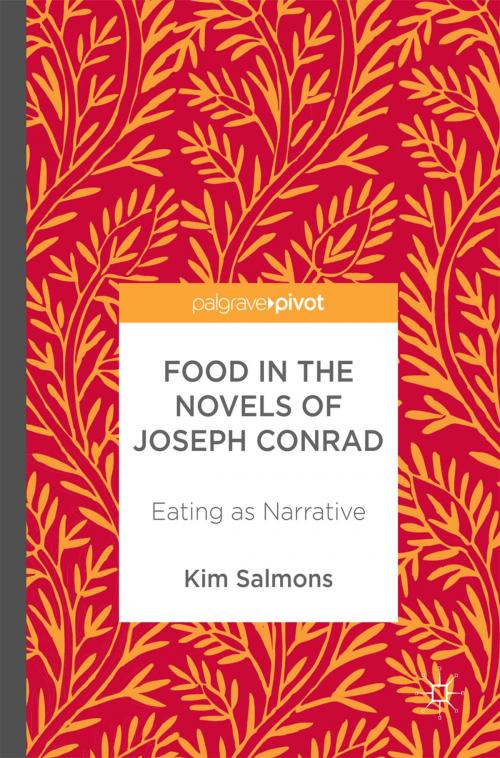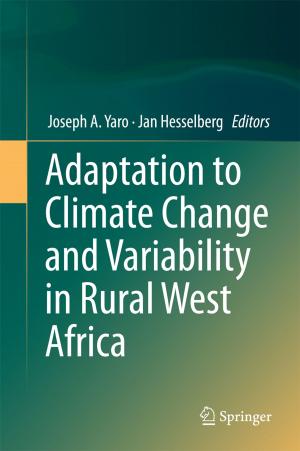Food in the Novels of Joseph Conrad
Eating as Narrative
Fiction & Literature, Literary Theory & Criticism, British| Author: | Kim Salmons | ISBN: | 9783319566238 |
| Publisher: | Springer International Publishing | Publication: | July 18, 2017 |
| Imprint: | Palgrave Macmillan | Language: | English |
| Author: | Kim Salmons |
| ISBN: | 9783319566238 |
| Publisher: | Springer International Publishing |
| Publication: | July 18, 2017 |
| Imprint: | Palgrave Macmillan |
| Language: | English |
This book is about the role of food in the works of Joseph Conrad, analysing the social, political and anthropological context of references to meals, eating, food production and cannibalism. It offers a new perspective on the works of Joseph Conrad and provides an accessible medium through which readers can engage with the complex theories and philosophical dilemmas that Conrad presents in his fiction. This is the only major study of food in Conrad’s works; it is unique in its interdisciplinary approach to food in that it engages with sociological, political, historical, personal and literary perspectives, thus providing a multi-dimensional approach to cultural, revolutionary, periodical and fictional representations of the late nineteenth and early twentieth centuries. This in turn, allows an interrogation of modern anxieties, embedded in cultural norms and values that can be interpreted through the way that food is prepared and eaten.
This book is about the role of food in the works of Joseph Conrad, analysing the social, political and anthropological context of references to meals, eating, food production and cannibalism. It offers a new perspective on the works of Joseph Conrad and provides an accessible medium through which readers can engage with the complex theories and philosophical dilemmas that Conrad presents in his fiction. This is the only major study of food in Conrad’s works; it is unique in its interdisciplinary approach to food in that it engages with sociological, political, historical, personal and literary perspectives, thus providing a multi-dimensional approach to cultural, revolutionary, periodical and fictional representations of the late nineteenth and early twentieth centuries. This in turn, allows an interrogation of modern anxieties, embedded in cultural norms and values that can be interpreted through the way that food is prepared and eaten.















